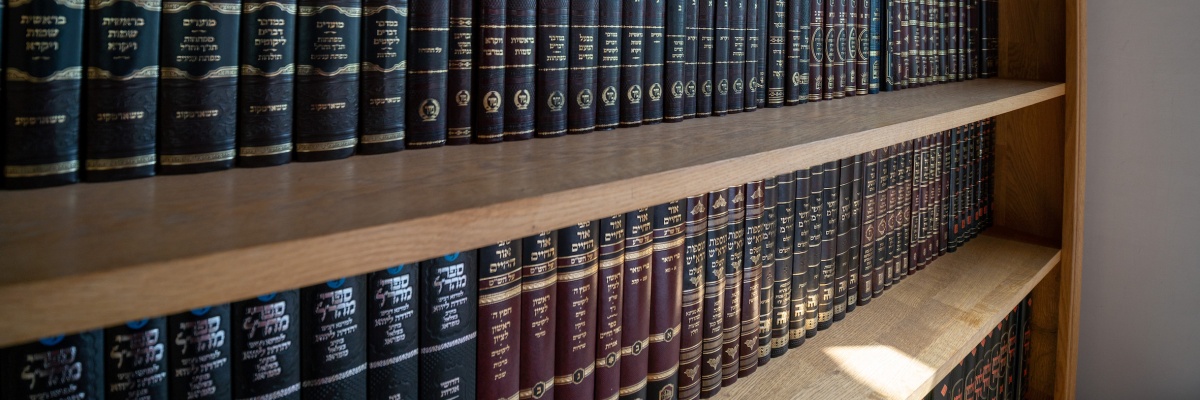
Malcolm Gladwell, in his book Outliers, posits that it takes 10,000 hours of practice for people to become expert in any field, be they NHL hockey players, pilots, guitarists for the Beatles, or computer programmers. It is quantity that produces quality[1]. Yet practice does not make perfect; doing something over and over again ensures only that a mistake, once made, will continue to be made over and over again. It requires perfect practice to make something perfect.[2]
While this is true in all fields of endeavour, our Sages understood that the hardest habits to change are those learned in childhood. It is for this reason that the halacha rules that given a choice between a teacher who covers a lot of ground but imprecisely, and one who covers much less but ensures the children know the material very well, it is the latter whom we hire (Bava Batra 21a). One can always pick up the pace at a later date, but sloppy learning habits are much harder to change.
So crucial is the proper teaching of our children that our Sages ruled that a poor teacher can be fired with no notice[3]. It is a “loss that does not return” and hence, immediate action is called for. The Gemara even records a debate as to whether a fine teacher may be replaced by an excellent one.
Of course, teaching is not the only profession where mistakes cannot be easily corrected. “A tree planter, a butcher, a blood-letter and a scribe are all considered forewarned” (Bava Batra 21b). Included are not only those who endanger our physical well-being, such as a negligent blood-letter; or our spiritual well-being, such as a teacher or even a scribe; but even those who cause monetary damage, such as one whose shoddy work causes the trees to grow poorly.
Teaching has another aspect that may set it apart from other industries.
“Rav Huna said: If a resident of an alley sets up a mill and another resident of the alley wants to set up one next to him, the first has the right to stop him, because he can say to him, 'You are interfering with my livelihood’…Rav Huna the son of Rav Yehoshua said: It is obvious to me that the resident of one town can prevent the resident of another town [from opening up a competing mill]. However, if he pays taxes to that town, he can’t be prevented [from competing]; and [it is clear] that the resident of an alley cannot prevent another resident of the same alley [from competing]” (Bava Batra 21b).
Rav Huna and Rav Huna bar Yehoshua have a most important and always relevant debate regarding the limits of competition. Rav Huna takes a more protectionist stance, arguing that one may not open a store in the immediate vicinity of the competition; he can claim, “You are destroying my livelihood”. Rav Huna bar Yehoshua, whose view is the one accepted, has a much more laissez faire attitude, allowing the marketplace to determine which stores will survive and which won’t. The only restriction is that all must be taxed at the same level so that tax policies[4] do not offer an unfair advantage to one firm over another.[5]
While one can debate the limits of commercial competition, when it comes to Torah all agree that one cannot prevent another person from opening up a school. The rabbis wanted to encourage as much competition as possible, with the marketplace forcing schools to get better and better. Kina’at sofrim tarbeh chochmah, the jealousy of scribes increases knowledge[6] (Bava Batra 22a), and let the best school win. Just as we must fire a teacher if need be, we do nothing to protect the schools that can’t compete with those that are better.
Of course, just because unfettered competition is allowed does not always mean it is wise. All too often we have a situation where we have two competing schools, both of average quality or worse, whereas a “merger” might produce one good school.
While competing for students is great, one may not apply for a job occupied by another teacher—such would be a theft of another’s job. Rather, one must either open a competing school or wait until approached to fill a job vacancy (Tosafot, Kiddushin 59a, s.v. ani).
What I find remarkable is that on just one page of Talmud, we find the obligation of the Jewish community to provide free education for all, a discussion of when one may dismiss a worker, and a debate as to the limits of competition. “Turn it and turn it, for all is contained within it” (Pirkei Avot 5:22)
[1] Your typical Modern Orthodox Yeshiva high school graduate will have spent some 2,000-3,000 hours in Talmud study by the time high school is over. Add in two years of Yeshiva in Israel and we are still fewer than 10,000 hours. While basic talmudic proficiency should require a tenth of that time, it may help explain why so few graduates of yeshivot are talmidei chachamim.
[2] To continue on our Talmudic analogy, this does not necessarily mean that one should favour iyun, in-depth study, over bekiut, broad-based learning that may be somewhat superficial. It just means that whatever approach one takes to learning must be done accurately.
[3] I imagine this is not something that would be popular with teachers’ unions. But as a member of one myself, I hope I have the right to say so.
[4] It is this point that makes negotiating free trade deals so complex, as countries try to ensure that those allowed unfettered access to markets will not have tax advantages that give them a competitive edge. This is a key reason the United States administration wants to renegotiate NAFTA, believing that there is not a level playing field.
[5] For a comprehensive summary of the limits of competition, see Dr. Aaron Levine, Free Enterprise in Jewish Law, chapter 3.
[6] The Maharsha fascinatingly notes that the Gemara uses the term sofrim and not chachamim. Truly great talmedei chachamim are thrilled when others surpass them in knowledge and ability, and are happy to retreat so that others can do a better job. However, the Maharsha notes that very few Torah teachers actually reach this level. There are few of the likes of Rav Yehuda Amital zt”l, who invited someone else to replace him as Rosh Yeshiva. And there are few like Rav Aharon Lichtenstein zt”l, who accept on the condition that they be co-Roshei-Yeshivot.



